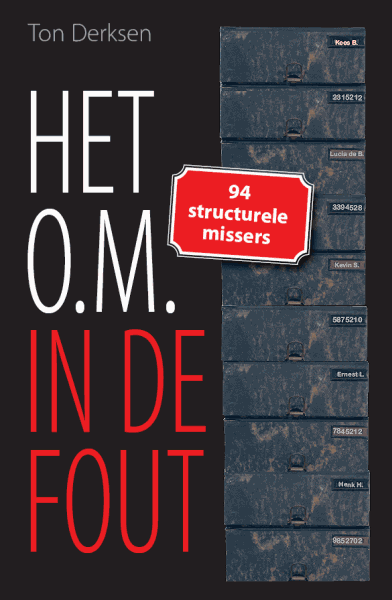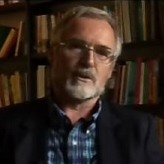A NEW BOOK by TON DERKSEN
“Public Prosecution Gone Awry”

Ton Derksen –
Public Prosecution Gone Awry [Dutch]
Paperback, 200 pages
ISBN 9789085711704
€ 18,94
A
Veen Magazines publication
The new book by Ton Derksen – out now!
A new publication by Ton Derksen, the author of the book
Lucia de B: Reconstruction of a miscarriage of justice.
This book describes 94 criminal bloopers made by the Dutch Public Prosecutor.
Copyright © 2008 | All Rights Reserved
# SUMMARY
If you want to keep any faith at all in the Public Prosecution, don't read this book. In five big cases (Louwes, Henk H, Sweeney, Lucia de B, Schiedam, together resulting in 63 years incarceration plus life), Ton Derksen sees the Public Prosecution, the Dutch public truth-finder, regularly speak untruths, covering up the truth and mangling the truth. The Schiedam Park Murder case is no exception; it shows a pattern of systematic failures that is now also apparent in other cases.
In these cases the Public Prosecutor functions as alleged truth-finder with a large amount of arbitrariness. Only one goal seems to be served: a prosecution of the suspect. The Public Prosecution blunders from one argument to the next, systematically closes itself off from criticism, gets rid of evidence that supports the defence and refuses to investigate evidence that might potentially support the defence. Mind, these errors, which are demonstrated in the book by a mass of concrete examples, are not about details, but about basic parts of the Public Prosecutors charges. Without these errors, judges would have had entirely different cases in front of them.
Derksen believes that the greatest evil is in the "Magic Eye" with which public prosecutors imagine themselves blessed: the capacity to see directly who the offender is – without evidence, but also against any evidence present. In the sacred belief that the Public Prosecutor knows the offender, a critical gathering and evaluation of evidence becomes accidental. Everything is allowed in order to ensure that Justice Prevails. Belief in an Eye like that causes enormous damage. After the failing of the Commission Evaluation Closed Criminal Cases only a complete independent review of the Public Prosecutor by a completely independent Review Commission can bring any relief.
# CONTENTS
- Prologue
- Structure of the book
- Part I: What are the deadly sins (Mega Mancos) for a truth-finder?
-
- Truth within the legal system
- A threefold task of the Public Prosecutor as truth-finder: truth-seeker, truth-reasoner and truth-presenter
- The Seven Deadly Sins for a truth-finder
- Speaking Untruth
- Withholding information
- Misleading formulation
- Arbitrariness
- Crucial Argumentation mistakes
- Being Closed to Criticism
- The Magic Eye: belief in truth-seeing
- Part II: What mistakes did the Public Prosecution make in 5 big cases?
-
- Preface
- The Schiedam Park Murder
- The Lucia de B. case.
- The Sweeney case
- The Deventer murder case
- The Henk H. case
- Short Commentary
- Preface
- Part III: What causes the mistakes?
-
- What causes the mistakes?
- Built in pressure in the system to come up with a positive answer
- Cognitive instincts that lead to a positive answer
- Ignoring underlying theories
- Bad weather
- Part IV: Can anything be done?
-
- Preface
- Improvement through re-education
- Improvement through personal responsibility
- Institutional improvement: the English independent CCRC
- Arguments against a Dutch Review Commission
- Arguments in favour of a Dutch Review Commission

# AUTHOR
Ton Derksen is retired professor of philosophy of science and cognitive philosophy. He is connected to the Radboud University in Nijmegen. He is retired professor of general knowledge- and science learning at the university of Tilburg. He has written besides many articles among other things books about probability (Probability, Chances and Belief), science (Science or arbitrariness), and the problematic nature of rationality (rationality and science). His current philosophical interests lie in the subjects consciousness, evolutionary psychology and aesthetics (depth-perception, Bach's music).